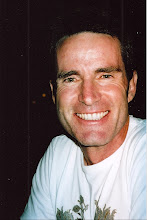That sure is a scary heading. In 2007, just after 30 odd people were shot by a crazy gunman in the US, it seems almost foolish to write a story that takes a light-hearted look at the day I tried to take a gun to school. But that's exactly what I'm going to do.
Back in the early 1970s, Jerdacuttup Primary School was a tiny two roomed transportable building with a flat tin roof and a rain water tank for drinking water that was the grave for the odd dead lizard. The rooms were square and each had jarrah floors that made the sound of slamming desk lids seem that much louder. During the winter we were cold and during summer we melted in the far from well-designed shelters. But that was life at Jerdy primary. Thirty odd kids - and yes some of us were odd - especially yours truly.
It was in grade four or five that we were given a project by our then headmaster Mr Jones. He was a thick-set, red-headed, short-strutting, tough-nut footballer who loved nothing better than to dish out shirt fronts on a footy field, and, whilst I didn't rate him highly as a teacher, I admired the way he went about his work in a game of football. One to be feared that Mr Jones! So when we were told we were to do a project about anything in social studies a few of us boys got together and began to nut out what to do. We all lived on farms so we were never going to read about Shakespeare. No, we wanted a boys project. And being that we'd all used guns on the farm, we thought they would make the perfect project. After all, there were plenty of what we considered pests at the time, eating our parents crops and pastures, or wreaking havoc on new born lambs. Guns it had to be!
At the time, our tiny library contained a single set of encyclopedia which we thought would be our best resource. We grabbed one of the thick, heavy books off the shelf and went to work trying to find out a little more about guns and rifles. Being that we didn't have a photocopier we thought it would look pretty impressive to trace an image of an old rifle to add a picture to our project. So that's what we did. Using a piece of tracing paper and a lead pencil, we fashioned an image of what for us was the ultimate farming tool. But when we looked at this puny facsimile of that which captured our imagination we were left flat. We were devastated to see that our art had so utterly failed to embody the essence of what our project was all about. What a let down! Then the brain wave hit me. If we're doing a project on guns, why not bring one to school!? That would be the ultimate way of showing the other kids what a firearm was and how it operated. What a great idea! I explained to the other boys that we owned an air-rifle with a sawn off barrel. It still worked, I enthused. I claimed that it would be perfectly OK to bring to school being that it was only an air rifle, and besides, we only ever used wheat or oats as ammunition. It was perfect. And without a voice of dissent - and thinking it probably best not to ask Mr Jones - the plan was in place. So the next morning, there I was at the bus stop on that lonely stretch of gravel road, school bag in one hand and air rifle in the other. I was going to do well in show and tell today.
When the bus finally arrived, I could hardly wait to get on. The bus driver though, didn't share my enthusiasm. Mr Dow calmly advised me that it would probably be best to leave the gun behind, and suggested that I hide it in the bush under the letter box - which I did. It didn't occur to me, when we finally arrived at school, why Mr Dow and Mr Jones were in such a long, concerted conversation after dropping us kids off. But then again, I've never been the quickest thinker.
I never did try to take a gun to school again. I took lassos and whips, but never a gun. And as I look back on those days I remember them being innocent, and full of fun and adventure. If someone tried to take a gun to school today it would probably be with anger and ill-intent. There'd be police and psychologists, court and a government inquiry, and someone would probably end up in jail. But back in 1973, at Jerdy primary, it was just shrugged off, and life went on as usual. It was a way of life that was practical and uncomplicated, where everyone looked out for each other and shared a genuine, earthy sense of humour. It was a way of life that today is only ever captured in fictional stories of the outback. A way of life I'm proud to say I lived.
